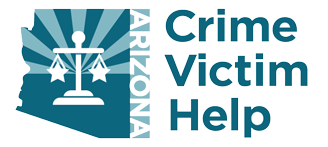Stalking
What is stalking?
Stalking is when a person repeatedly watches, follows, or harasses someone, making them feel afraid or unsafe. A person can be stalked by someone they know, such as a family member, an ex-partner, or an acquaintance, or by a stranger. One of the ways perpetrators stalk people is by using technology, which is sometimes referred to as cyberstalking.

Stalking behavior can take many forms, including:
Making threats against someone or their family or friends.
Non-consensual communication, such as repeated phone calls, emails, text messages, social media comments, or unwanted gifts.
Repeated physical or visual closeness, such as waiting for someone to arrive at certain locations, following someone, or watching someone from a distance.
Posting threatening or personal information about someone on a public internet forum, which is also known as doxing.
Video-voyeurism or installing video cameras that give the stalker access to someone’s personal life.
Using GPS or other software tracking systems to watch someone without their knowledge or consent.
Using someone’s own computer or phone and/or spyware to track their computer activity.
Non-consensual communication, such as repeated phone calls, emails, text messages, social media comments, or unwanted gifts.
Repeated physical or visual closeness, such as waiting for someone to arrive at certain locations, following someone, or watching someone from a distance.
Posting threatening or personal information about someone on a public internet forum, which is also known as doxing.
Video-voyeurism or installing video cameras that give the stalker access to someone’s personal life.
Using GPS or other software tracking systems to watch someone without their knowledge or consent.
Using someone’s own computer or phone and/or spyware to track their computer activity.
Under Arizona law (A.R.S. 13-2923), a person commits the crime of stalking if they purposely or knowingly engage in one of the forms of behavior above in a way that causes the other person to suffer emotional distress or reasonably fear that they or a relative, current or former partner, friend, or pet will be physically harmed or killed or that their property will be damaged or destroyed.


Stalking is a class 5 or 3 felony in Arizona. Depending on the specific situation, a person convicted of stalking can be sentenced to prison for many years. A.R.S. § 13-2923(C)
What can I do if I am being stalked?
Stalking is a crime. Options available to victims of stalking include:

Calling 911 if you feel there is immediate danger.
Contacting a domestic violence or victim services program. Programs like these can help victims develop a safety plan and refer victims to helpful resources. For more information about safety planning visit, AZCoalition.
Telling a family member, friend, or coworker what is happening.
Contacting a domestic violence or victim services program. Programs like these can help victims develop a safety plan and refer victims to helpful resources. For more information about safety planning visit, AZCoalition.
Telling a family member, friend, or coworker what is happening.
Keeping a record of what the stalker is doing. This can include saving copies of emails or text messages or taking note of where and when the stalker is present.


Making a report with law enforcement about what is happening.
Applying for a protective order, which is a court order that will tell the stalker to stay away. This is sometimes known as a restraining order. For more information about getting a protective order visit, AZPoint.
Applying for a protective order, which is a court order that will tell the stalker to stay away. This is sometimes known as a restraining order. For more information about getting a protective order visit, AZPoint.
What resources are available to victims of stalking?
The Stalking Prevention, Awareness, and Resource Center has information and resources about how to deal with stalking.
The Arizona Coalition to End Sexual and Domestic Violence provides information about local resources to help address stalking.


